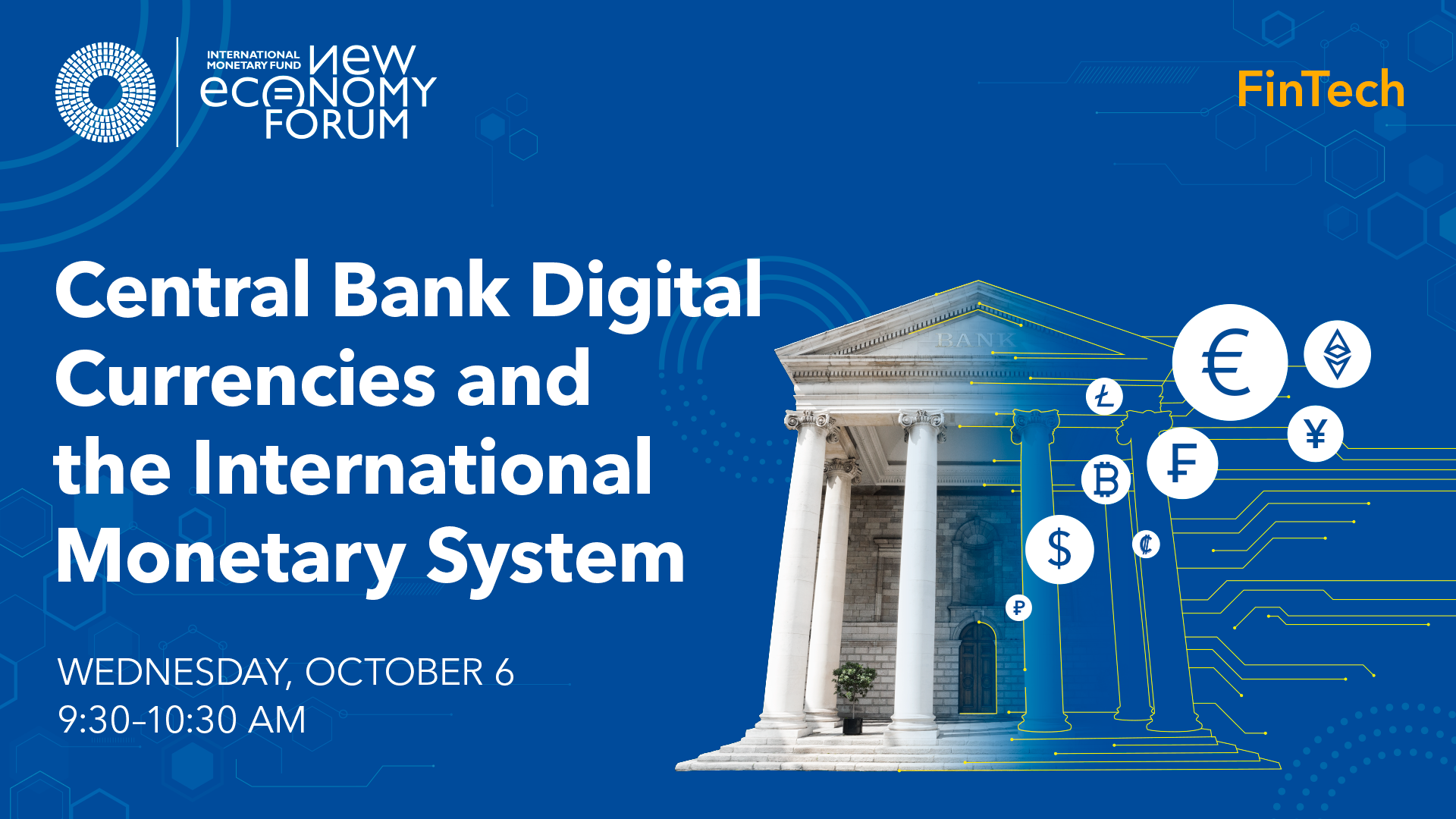Wednesday, Oct 6, 2021 | 10:30 AM - 11:30 AM
Location: Media Studio - Blue Level, HQ1-B-640

Will central bank digital currencies improve the stability of the international monetary and financial system? Will they lead to a re-configuration of international currencies and the global financial safety net? This panel of policymakers and academics will provide interesting perspectives on possibilities and future dynamics.
 |
Moderator |
 |
Markus Brunnermeier |
Markus Brunnermeier is the Edwards S. Sanford Professor at Princeton University. He is a faculty member of the Department of Economics and director of Princeton's Bendheim Center for Finance. He is also a research associate at NBER, CEPR, and CESifo and a member of the Bellagio Group on the International Economy. He is a Sloan Research Fellow, Fellow of the Econometric Society, Guggenheim Fellow and the recipient of the Bernácer Prize granted for outstanding contributions in the fields of macroeconomics and finance. He is/was a member of several advisory groups, including to the IMF, the Federal Reserve of New York, the European Systemic Risk Board, the Bundesbank and the U.S. Congressional Budget Office. Brunnermeier was awarded his Ph.D. by the London School of Economics (LSE). His research focuses on international financial markets and the macroeconomy with special emphasis on bubbles, liquidity, financial and monetary price stability.
 |
Neha Narula |
Neha Narula is the Director of the Digital Currency Initiative, a part of the MIT Media Lab focusing on cryptocurrencies and blockchain technology. She received her PhD in computer science from MIT in 2015 and graduated from Dartmouth College with majors in mathematics and computer science. Her current research interests are in cryptocurrencies and distributed systems. She has designed and taught three courses at MIT on cryptocurrencies and blockchains and is a lecturer at Sloan. She has been engaged in a research collaboration with the Federal Reserve Bank of Boston on Project Hamilton, to engage in research to understand the technology tradeoffs involved in a hypothetical digital dollar. In 2018, Neha was named to WIRED's list of 25 leaders shaping the next 25 years of technology and to Fortune's Ledger 40 under 40 list. She is a member of the World Economic Forum's Global Blockchain Council. From 2003 to 2009, Neha was a software engineer at Google. Her work has appeared in TechCrunch, Blackhat, WIRED, PBS NewsHour, CNBC, Amanpour and Company, and 60 minutes.
 |
Hyun Song Shin
|
As the BIS Economic Adviser, Hyun Song Shin co-leads the Monetary and Economic Department and is a member the Bank’s Executive Committee. Previously an academic (at Princeton University, Oxford University and the London School of Economics), he has been an intellectual leader in the fields of banking, international finance and monetary economics, topics on which he has published widely, both in leading academic and official publications. One area of recent focus has been in developing the BIS's research program on digital innovation and the financial system, including the design of central bank digital currencies and their implications for users, financial intermediaries and the central bank. Mr Shin was part of the BIS management team that developed the BIS Innovation Hub, and served as its Interim Head at its launch in 2019.
The international monetary system (IMS) might be at the cusp of a revolution driven by the emergence of digital money, including central bank digital currencies (CBDCs). The panelists discussed if CBDCs will improve the stability of the international monetary and financial system and lead to a re-configuration of reserve currencies and the global financial safety net.
Key Points:
Contributor: Veronika Sola